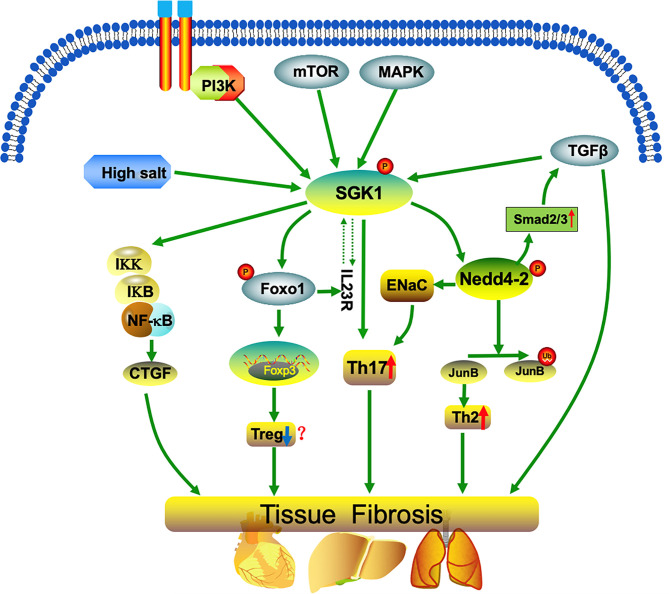Figure 1.
SGK1 mediates imbalanced differentiation of Th17 and Th2 cells. SGK1 regulation occurs both at the level of transcription (for example, by a high-salt diet, p38MAPK, or TGF-β) and at the post-translational level. SGK1 phosphorylates the ubiquitin ligase, NEDD4, and induces Th cell differentiation into Th17 and Th2 phenotypes, hinders Treg development (promotes Treg differentiation in a few studies), and promotes up-regulation of the transcription factor, SMAD2/3, thereby amplifying the pro-fibrotic effects of TGF-β. Further, SGK1 up-regulates the inflammatory transcription factor, nuclear factor-κB (NF-κB), which in turn stimulates the expression of multiple inflammatory mediators, including connective tissue growth factor (CTGF). Together, the processes described above promote the occurrence of inflammation and fibrosis.

